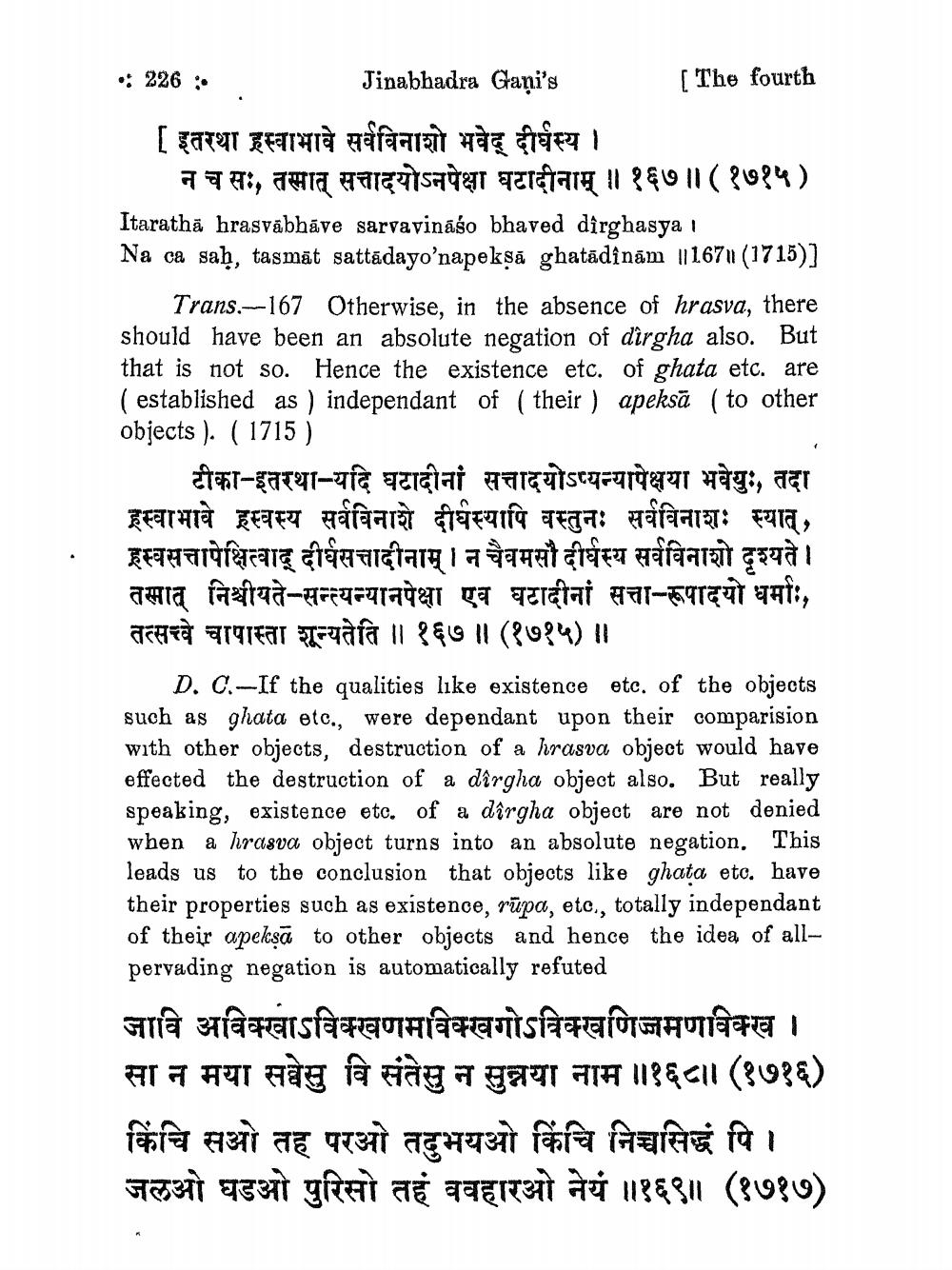________________
: 226 :.. Jinabhadra Gani's [The fourth [ इतरथा ह्रस्वाभावे सर्वविनाशो भवेद् दीर्घस्य ।
न च सः, तसात् सत्तादयोऽनपेक्षा घटादीनाम् ॥ १६७ ॥ (१७१५) Itaratha hrasvabhāve sarvavinášo bhaved dirghasya i Na ca sah, tasmāt sattādayo'napeksă ghatādinām 1116711 (1715)]
Trans.--167 Otherwise, in the absence of hrasva, there should have been an absolute negation of dirgha also. But that is not so. Hence the existence etc. of ghata etc. are ( established as ) independant of ( their ) apeksa. ( to other objects ). ( 1715)
टीका-इतरथा-यदि घटादीनां सत्तादयोऽप्यन्यापेक्षया भवेयुः, तदा इस्वाभावे इस्वस्य सर्वविनाशे दीर्घस्यापि वस्तुनः सर्वविनाशः स्यात् , इस्वसत्तापेक्षित्वाद् दीर्घसत्तादीनाम् । न चैवमसौ दीर्घस्य सर्वविनाशो दृश्यते । तसात् निश्चीयते-सन्त्यन्यानपेक्षा एव घटादीनां सत्ता-रूपादयो धर्माः, तत्सत्वे चापास्ता शून्यतेति ॥ १६७ ॥ (१७१५) ॥
D. C.-If the qualities like existence etc. of the objects such as ghata etc., were dependant upon their comparision with other objects, destruction of a hrasva object would have effected the destruction of a dîrgha object also. But really speaking, existence etc. of a dîrgha object are not denied when a hrasva object turns into an absolute negation. This leads us to the conclusion that objects like ghata etc. have their properties such as existence, rūpa, etc., totally independant of their apeksā to other objects and hence the idea of allpervading negation is automatically refuted जावि अविक्खाऽविक्खणमविक्खगोऽविक्खणिज्जमणविक्ख । सा न मया सवेसु वि संतेसु न सुन्नया नाम ॥१६८॥ (१७१६) किंचि सओ तह परओ तदुभयओ किंचि निच्चसिद्धं पि । जलओ घडओ पुरिसो तहं ववहारओ नेयं ॥१६९॥ (१७१७)




